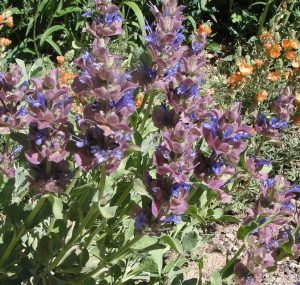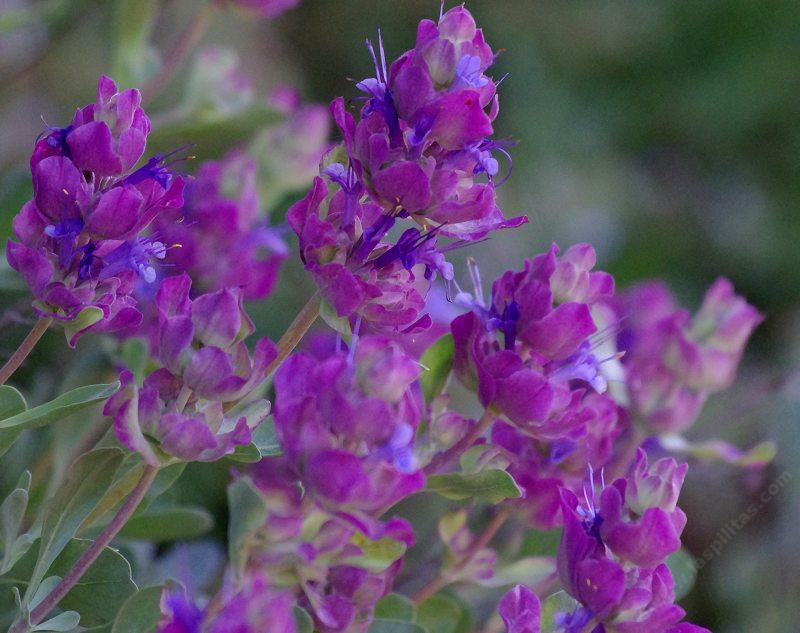Rose Sage (Salvia pachyphylla) Benefits and Traditional Herbal Uses

Rose Sage (scientifically known as Salvia pachyphylla) is an extraordinarily showy evergreen shrub native to America and can be found in many parts of the world. The plant is an ancient herb that has been used in traditional herbal medicines for long.
Rose Sage produces slightly cupped, silvery grey, aromatic leaves on square stems. The intensely coloured inflorescences consist of tubular blue flowers that extend beyond the rosy pink bracts. The long stamens add further elegance to the display. It grows up to 2-3 feet tall and wide (60-90 cm). Rose Sage produces eye-catching flowers over a very long season, blooming from July to September.
External links
safety and side effect of Rose Sage (Salvia pachyphylla)

